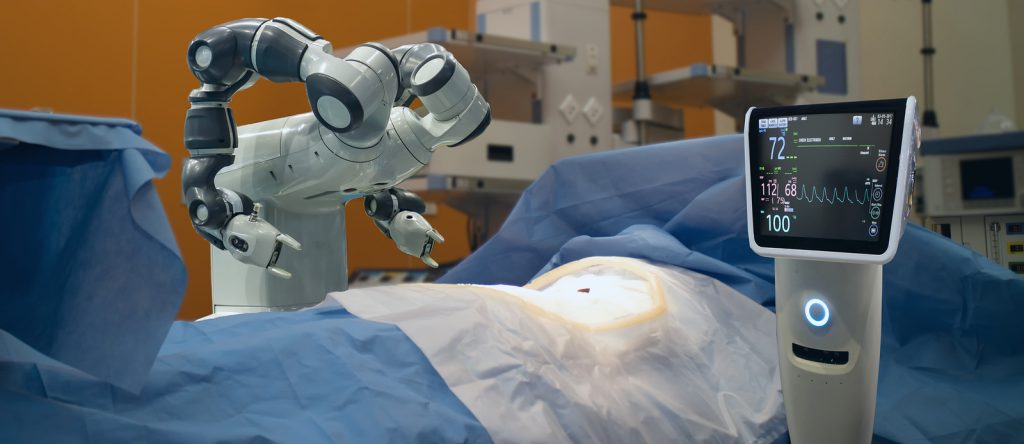Patients in hospitals all over the UK could soon find that the use of robots in the surgical theatre becomes more commonplace in the near future, with more medics apparently now being trained in robotic surgery.
According to Sky News, it’s expected that robotic surgery will transform how operations are performed, with doctors able to perform complex techniques in a minimally invasive way, such as keyhole surgery.
The NHS is also now developing a £50 million framework for robotic surgical equipment, so it certainly seems as though it’s fast becoming a reality in the UK.
Neurosurgeon Richard Kerr, of the Royal College of Surgeons, explained that robots won’t be taking over what the doctors do, but instead will become an “integral part of the tools surgeons use to carry out operations on their patients”.
“Maybe in the long-distant future some aspects of surgery may potentially be delivered by robots,” he did go on to say, however.
A BBC report earlier this month (September) revealed that a new robotic surgery system has been developed that is expected to start operating on patients for the first time in 2020.
The Versius robot, designed and built in Cambridge, has independent modular arms that have flexible joints much like human arms. These are controlled by a surgeon sitting at a console with a 3D screen and two joysticks.
Robot systems use keyhole surgery, carried out with instruments via small incisions, resulting in reduced pain and faster recovery times. This kind of surgery also allows surgeons a better magnified view, as well as increased dexterity.
Currently, the robotic surgery industry is led by da Vinci, made by US-based company Intuitive Surgical. Da Vinci robots have been in use in the UK since 2001, with more than 4,500 now around the world. They’re predominantly used for prostate, gynaecological and bladder surgery, although this is expanding.
Member of the Royal College of Surgeons’ Commission on the Future of Surgery Dr Hachach-Haram explained to the news source that robots may in the future carry out some elements of surgery independently of doctors.
“Surgeons will remain in control but as we develop the human-robot interface there may be simple parts of an operation, such as suturing or closing a wound that may be automated,” he said.
A recent NHS report suggested that robots, smart speakers and artificial intelligence could be used to help ease the burden on NHS doctors in the future – but it’s important that staff are freshly educated and trained, since 90 per cent of all jobs in the health service are expected to need digital skills inside 20 years.
The review also suggests that use of technology will help enhance the professional experience for those in the sector, allowing them greater time for their patients.
Are you looking for medical calibration services at the moment? Get in touch with us today.

